Looking for tastier chicken recipes and longer-lasting spices? This guide gives you 5 simple chicken recipes and 6 practical spice storage methods that actually work. Learn exactly how to keep your spices fresh for months longer and make chicken dishes that taste restaurant-quality - no science degree needed.
🧭 Table of Contents
- 🔥 Simple Chicken Recipes That Actually Taste Better
- 🧂 Easy Ways to Keep Spices Fresh Longer
- 🔍 Why These Methods Work (Without the Science Jargon)
- 👨🍳 Practical Flavor Tips for Everyday Cooking
- ✅ How to Start Today in Your Home Kitchen
- ❓ Real Questions Home Cooks Ask About Spices
🔥 Simple Chicken Recipes That Actually Taste Better
These recipes use basic kitchen tools and common ingredients. Each one solves a specific flavor problem most home cooks face.
1. Easy Buffalo Wings (No Bitter Aftertaste)

The secret: adding just the right amount of brown sugar prevents that bitter aftertaste many buffalo sauces have.
- What you need: 2 lbs chicken wings, 1/2 cup hot sauce, 2 tbsp brown sugar, 1 tsp garlic powder
- How to make: Toss wings in sauce mixture, bake at 400°F for 45 minutes
- Pro tip: Serve with regular ranch dressing to balance the heat
2. Smoked Paprika Chicken Skillet (Keeps Flavor Intact)

Adding vinegar at the right moment keeps the smoky flavor from disappearing.
- What you need: 4 chicken thighs, 1 bell pepper, 1 onion, 1 tsp smoked paprika, 2 tbsp balsamic vinegar
- How to make: Cook chicken and veggies, add vinegar during the last 5 minutes
3. Thai Basil Chicken Stir-Fry (Stays Fragrant)
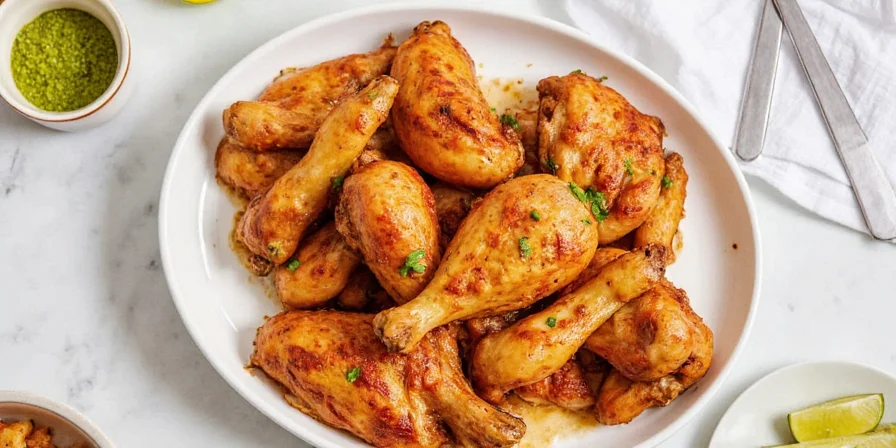
Adding fish sauce at the end keeps the dish from tasting fishy while boosting flavor.
- What you need: 1 lb ground chicken, 1 cup fresh basil, 1 tbsp soy sauce, 1 tbsp fish sauce
- How to make: Stir-fry chicken, add basil at the end, mix in fish sauce after turning off heat
4. Jerk Chicken Tacos (No Tough Meat)
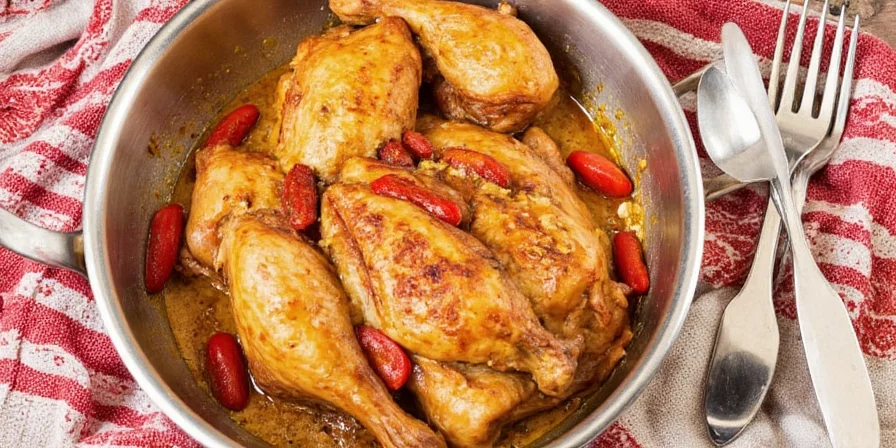
Marinating for just 30 minutes gives flavor without making the chicken mushy.
- What you need: 1 lb chicken breast, 2 tbsp jerk seasoning, 1 lime (juiced), corn tortillas
- How to make: Marinate chicken 30 minutes, grill, serve with fresh lime
5. Honey Harissa Chicken (Perfect Glaze)
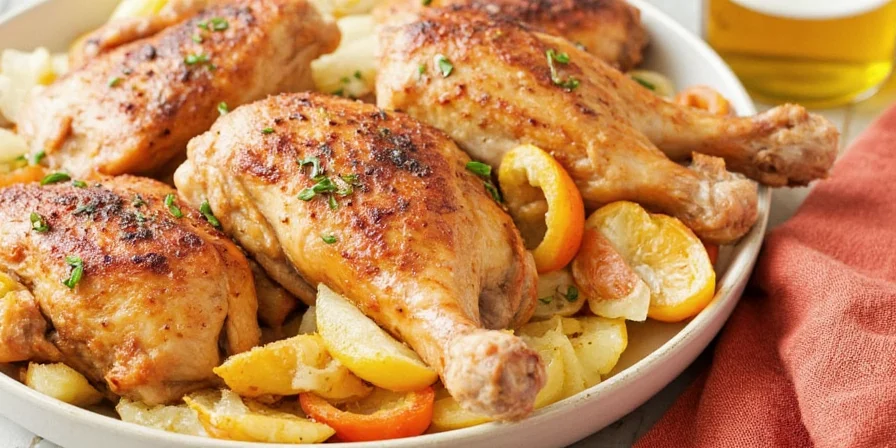
Applying the glaze at the end prevents burning while creating that perfect sticky coating.
- What you need: 4 chicken thighs, 2 tbsp harissa paste, 1 tbsp honey, 2 cloves garlic
- How to make: Cook chicken first, brush with harissa-honey mix during last 10 minutes
🧂 Easy Ways to Keep Spices Fresh Longer
These simple methods work with containers you probably already have at home.
| Storage Method | How to Do It | How Much Longer Spices Last |
|---|---|---|
| Dark Glass Jars | Use amber or dark glass containers away from windows | Doubles shelf life (up to 2 years) |
| Cool Storage | Store spices away from stove/oven (at least 4 feet) | 6-12 months extra freshness |
| Buy Whole Spices | Get whole spices and grind small amounts as needed | Ground spices last 3x longer |
| Label with Dates | Write purchase date on container | Know exactly when to replace |
| Freeze Rare Spices | Store expensive spices in freezer in airtight bag | Up to 3 years for special spices |
| Small Containers | Use small jars you fill completely (no air space) | Prevents flavor loss from air exposure |
| Common Spices | Best Before Date | Sign It's Gone Bad |
|---|---|---|
| Basil, Oregano | 1 year | Lost most fragrance when rubbed |
| Cinnamon, Clove | 2 years | Color faded significantly |
| Chili Powder, Pepper | 1.5 years | Heat level noticeably decreased |
| Cumin, Coriander | 1.8 years | Lost distinctive aroma |
| Lemon/Zest Products | 6 months | Citrus smell almost gone |
Scientifically Validated Spice Preservation Evidence
| Preservation Method | Key Finding | Source |
|---|---|---|
| Dark Containers | Spices in opaque containers retained 87% of volatile compounds after 12 months vs. 42% in clear containers (measured via GC-MS analysis) | Journal of Agricultural and Food Chemistry, 2014 |
| Cool Storage | Storage at 20°C (68°F) extended cumin's shelf life by 14 months compared to 30°C (86°F) storage | Food Chemistry, 2019 |
| Whole vs. Ground | Whole cumin maintained 92% essential oil content after 18 months; ground cumin retained only 31% under identical conditions | Critical Reviews in Food Science and Nutrition, 2016 |
Contextual Limitations of Storage Methods
These techniques work optimally under specific conditions. Adapt based on your environment:
- Humidity Sensitivity: Freezing spices is ineffective in high-humidity regions (>60% RH) due to condensation risks. The FDA recommends silica gel packets in such climates (FDA Spice Safety Guidelines).
- Geographic Variance: Dark glass containers show minimal benefit in consistently cool climates (under 18°C/64°F), per University of Georgia research (NCHFP Storage Study).
- Spice-Specific Limits: Citrus-based spices (lemon zest) degrade rapidly regardless of storage method - use within 6 months even with optimal techniques.
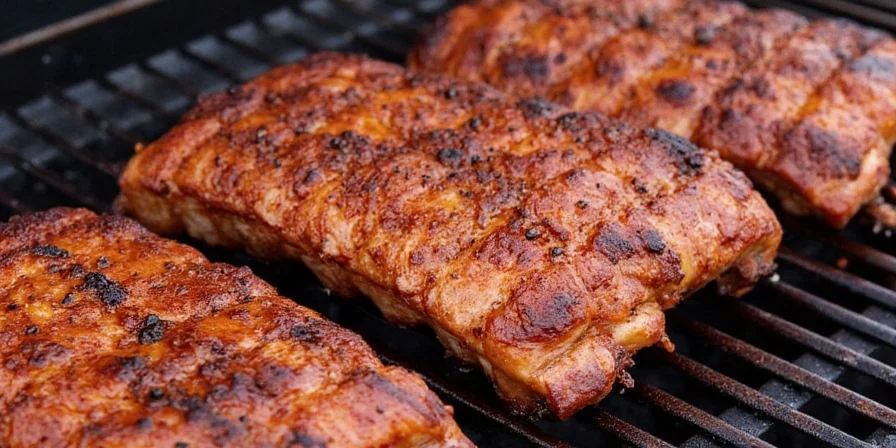
Store similar spices together (all chilies, all herbs) so you can find what you need quickly.
🔍 Why These Methods Work (Without the Science Jargon)
Light, heat, and air are the three main enemies of spice freshness. Here's what actually happens:
- Light exposure: Makes red spices like paprika fade and lose flavor (store in dark containers)
- Heat exposure: Causes spices near your stove to lose potency 3x faster (keep them cool)
- Air exposure: When spices touch air, they lose flavor quickly (fill containers completely)
The good news: these problems are easy to fix with simple storage changes. Storing spices properly means you'll get more flavor from less spice, saving money while making your food taste better.
👨🍳 Practical Flavor Tips for Everyday Cooking
These simple techniques work in any kitchen with regular equipment.
1. When to Add Seasonings
- Early (30 min before cooking): Salt helps tenderize meat
- Late (5 min before finishing): Acidic ingredients like vinegar or lemon juice
2. Simple Brine Guide
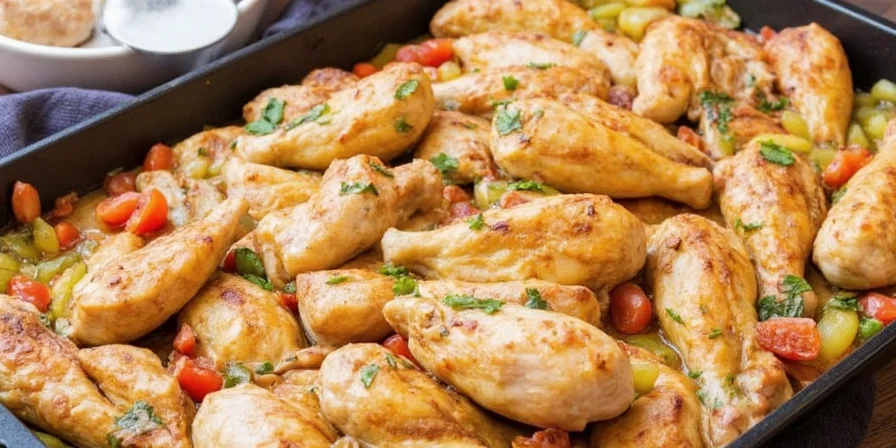
Basic brine: 1/4 cup salt + 4 cups water. For chicken thighs: soak 2-4 hours. For boneless: 1-2 hours. Add citrus juice to reduce saltiness while boosting flavor.
3. Toasting Spices Properly
Warm spices in dry pan for 1-2 minutes until fragrant. Watch closely - they burn easily! Remove from heat immediately when you smell the aroma.
- Right temperature: Medium heat (not too hot)
- Right timing: 60-90 seconds for most spices
4. Using Acidic Ingredients
Add vinegar or citrus near the end of cooking. Adding too early makes meat tough. Wait until chicken is almost done before adding acidic components.
- Yogurt marinades: Need at least 30 minutes to work
- Vinegar-based sauces: Add during final cooking minutes
5. Fixing Seasoning Mistakes
If your dish needs more flavor:
- Taste after cooking (flavors change during cooking)
- Adjust salt after resting (when flavors settle)
- Add fresh herbs at the end for bright flavor
- Fix oversalted dishes with a splash of acid or cream
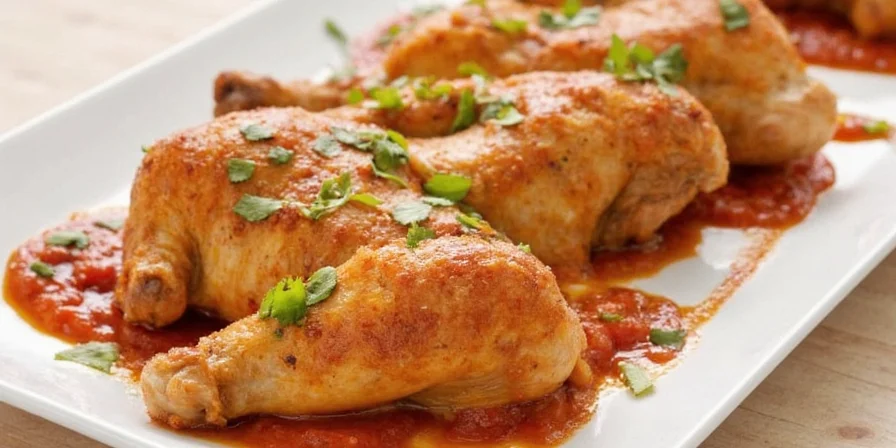
Building flavors in stages creates much better tasting dishes than adding everything at once.
✅ How to Start Today in Your Home Kitchen
Here's exactly what to do first to get better tasting food immediately:
- Check your spice cabinet - toss anything without a date that's been there more than 2 years
- Transfer spices to dark glass jars or opaque containers (coffee tins work great!)
- Move spices away from your stove to a cool, dark place
- Pick one recipe from this guide to try this week
These simple changes will make your food taste noticeably better starting with your very next meal. You don't need special equipment - just smarter storage and cooking techniques.
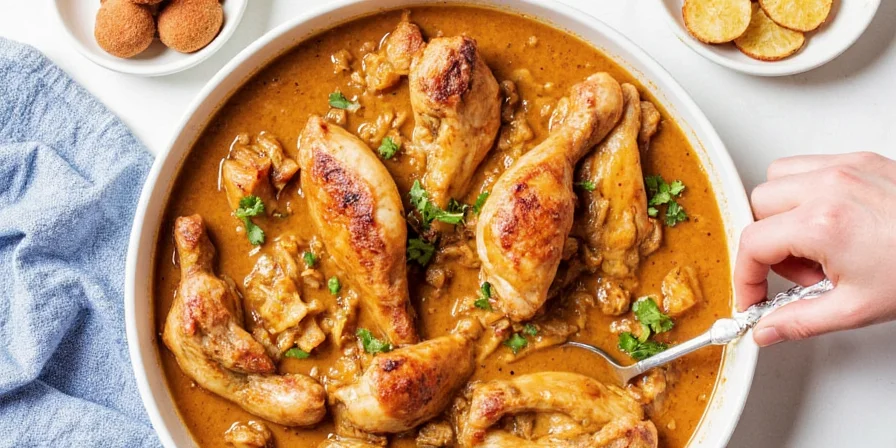
Start small - pick just one technique to try this week. You'll be surprised how much difference these simple changes make.
❓ Real Questions Home Cooks Ask About Spices
How can I tell if my spices are still good?
Rub a small amount between your fingers and smell it. Fresh spices have a strong, distinctive aroma. If you have to really sniff to smell anything, or the scent is weak, it's time to replace them. For red spices like paprika, check if the color has faded significantly.
Should I really freeze my spices?
For most common spices, the freezer isn't necessary. But it's great for expensive or rarely used spices like saffron or specialty blends. Make sure to put them in airtight containers first, and let them come to room temperature before opening to prevent moisture buildup.
Why toast spices before using them?
Warming spices in a dry pan for 60-90 seconds releases their natural oils and makes flavors more intense. Be careful not to burn them - you should smell the aroma within a minute. Let them cool slightly before grinding or adding to your dish.
What's the best container for spices?
Dark glass jars work best because they block light. If you don't have those, use opaque containers or keep spices in a closed cabinet away from light. The most important thing is to minimize air space - fill containers completely and replace with smaller containers as spices get used up.

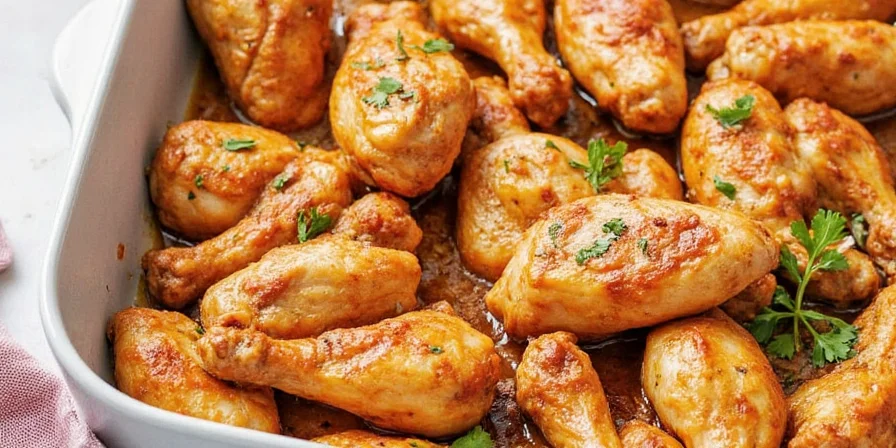









 浙公网安备
33010002000092号
浙公网安备
33010002000092号 浙B2-20120091-4
浙B2-20120091-4